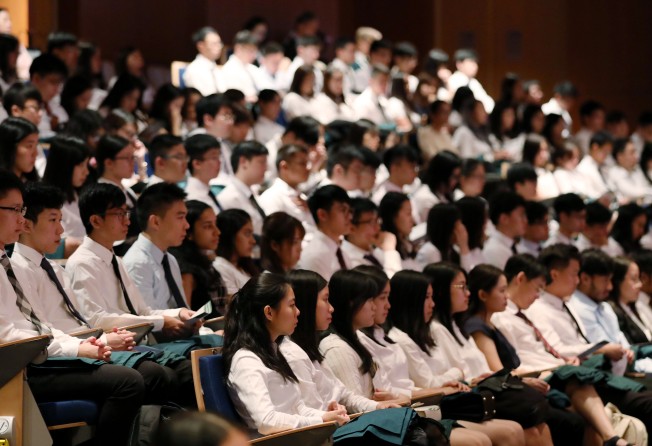WNHK: the ‘why not Hong Kong?’ dilemma
Instead of going to university overseas, more international school students are mulling the idea of staying put in the SAR to get their degree. But they and their families have some important factors to weigh up in making this vital decision

In my previous life in a well-established international school, I witnessed an increase in the number of students applying to Hong Kong universities each year – from around 30 to 70 – in the past 15 or so years. I also saw an even greater rise in those actually taking up places – from around three to five, to 30-35. This was by far the most significant trend, with other destinations staying fairly constant in proportion to one another.
Why is this the case?
While remembering that each individual’s journey and decision is unique to that student, there are some fairly obvious factors we can recognise.
Quality
The high academic quality of Hong Kong universities has been reflected in world university rankings, resulting in a very good press and a growing reputation in recent years. If one calculates this on a per capita basis, Hong Kong comes out very well indeed.
Cost
At HK$42,000 per annum in tuition fees, a Hong Kong higher education is almost irresistibly easy on the finances. You might also be surprised at the cost of student accommodation, given the price of property here. A shared room at Hong Kong University of Science and Technology (HKUST) starts at slightly more than HK$10,000, whereas a triple is less than HK$8,000 at Chinese University (CUHK), for the whole academic year.
Demographics
On the surface, international schools have become more “local” in terms of the make-up of their student population. I say “on the surface”, as many students who appear to be local Hong Kong Chinese actually have Canadian or Australian passports because their parents were part of the pre-handover diaspora to those countries and, indeed, many of these students were born and spent their early years there.
Career
Those aspiring to practise medicine in Hong Kong are well-advised to study it here, either at CUHK or the University of Hong Kong (HKU) for a smoother transition from degree to career, not to mention a huge difference in cost. However, the idea – or perhaps myth – that a degree from HKU is an ironclad guarantee of a top job for life in the civil service or private sector has long vanished.
FOMO
“Fear of missing out” is a common phenomenon among parents and students in international schools as they see their peers applying, and perhaps receiving, offers from destinations they hadn’t hitherto considered, eliciting the response, “Why aren’t we?” Factor in the lower cost of university in Hong Kong and this creates an awkward dilemma for the student, who perhaps prefers an overseas undergraduate experience but does not wish to impose that financial burden on their parents. I know this first-hand and, in more than one case, the student has even changed his or her choice to Hong Kong without having had a frank discussion about this dilemma with the parents.
What advice can I offer?
Do not be distracted by what others are doing – they are not you! If you consider your own circumstances, talents and preferences, and do your higher education research well, your preferred destination(s) should be clear and obvious. If you do consider Hong Kong, recognise its limitations as well as its strengths: for instance, there are only nine universities in Hong Kong – eight public and one private: Shue Yan University.
As with other destinations, families may only know the brand names: in our case, the big three of HKU, CUHK and HKUST. Take off the blinkers and recognise that others, such as Polytechnic University and City University have some world-class departments in fields such as engineering, hotel management, design and creative media, and may offer subjects not available at the big three such as veterinary medicine, physiotherapy and optometry. You may wish to consider the vocational options offered through the Vocational Training Council, or creative ones offered at the Hong Kong Academy for Performing Arts or Savannah College of Art and Design Hong Kong.
Visit at least one Hong Kong campus well before you finish secondary school. They are all very accessible, often by MTR, and are welcoming. Try to go during term time, so you get a realistic atmosphere. Consider the social as well as the academic dimension. Talk to older relatives or siblings of friends who attend local universities and ask them about their experiences.
There are certain elements of an overseas undergraduate experience that are often intangible and which cannot be replicated in Hong Kong. You might opt for a year or semester abroad as part of your Hong Kong degree, but that isn’t quite the same. Consider how you feel about that, and perhaps how you feel about continuing to live at home for much of your course. Whatever your answer to “Why not Hong Kong?”, try to consider it well in advance, make it a family discussion and, as with any higher education research, use trusted resources, your own best judgment, and leave the FOMO to others.